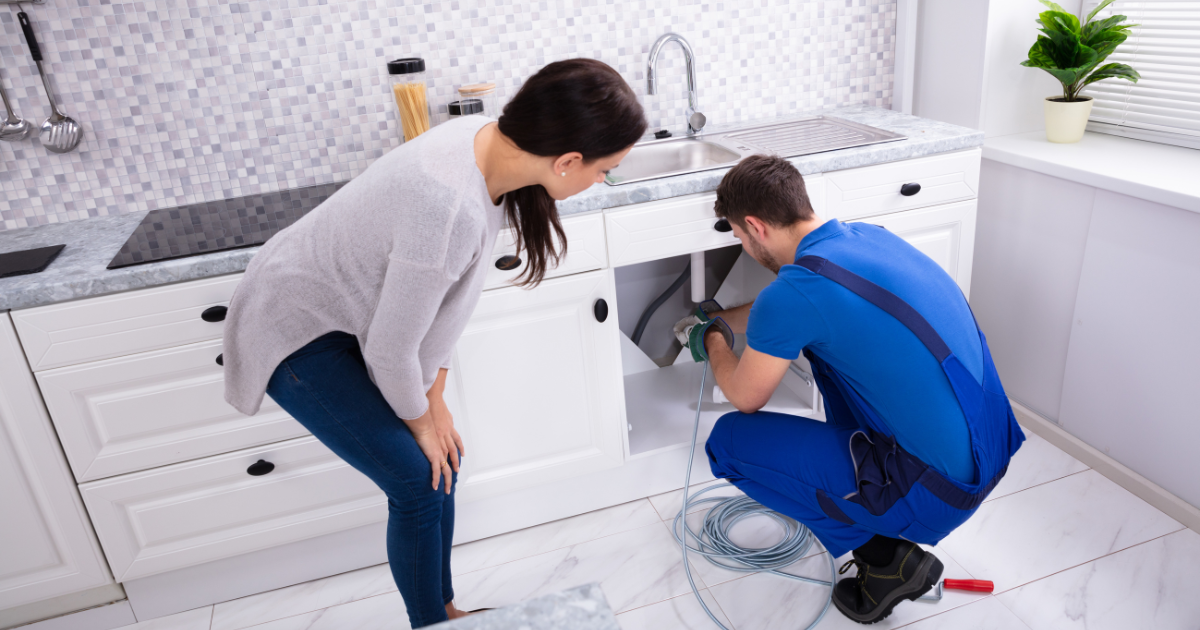Approaches for Fixing a Blocked Drain Before Calling Professional Help
Approaches for Fixing a Blocked Drain Before Calling Professional Help
Blog Article
Just how do you really feel when it comes to 8 Tips For Clearing A Blocked Drain?

Intro
Handling a blocked drainpipe can be an aggravating experience, interrupting day-to-day activities and potentially creating damages to your home. Nevertheless, prior to reaching out to pipes professionals, there are steps you can require to address the problem on your own. In this overview, we'll check out do it yourself remedies and safety nets to tackle a blocked drain effectively.
Recognizing the Concern
The first step in addressing a blocked drain is identifying the signs. Slow drain, gurgling sounds, foul odors emanating from drains pipes, or water support up prevail indicators of an obstructed drain. Recognizing these signs early can aid prevent even more difficulties.
Choosing the Right Plumbing Solution
When choosing a pipes solution, consider factors such as experience, licensing, and consumer testimonials. Pick a respectable plumbing technician with a performance history of high quality craftsmanship and transparent prices methods.
Price Factors to consider
The price of specialist drain cleaning services can vary relying on the seriousness of the clog and the plumbing professional's rates. Request quotes from multiple service providers and inquire about any kind of surcharges to make sure openness and avoid shocks.
Security Precautions
When attempting DIY drain cleansing, prioritize safety. Use protective handwear covers and glasses to prevent contact with unsafe chemicals or microorganisms. Never ever blend various drain cleansing products, as this can produce hazardous fumes.
Situation Studies
Real-life instances highlight the effectiveness of DIY services and the importance of timely expert treatment in fixing drain clogs.
Common Sources Of Obstructed Drains
Recognizing the factors that add to drain blockages is important for reliable resolution. Usual culprits consist of hair, soap scum, grease, food particles, and foreign things like hygienic items or paper towels. Tree roots invading below ground pipelines can additionally create considerable clogs.
DIY Solutions
For minor blockages, a number of do it yourself remedies can be efficient. Putting boiling water down the drain can aid liquify grease and debris. Baking soda and vinegar or a combination of salt and baking soda can function as all-natural cleansers. Making use of a plunger or pipes snake to dislodge blockages is another option.
Devices and Tools
Having the right tools accessible can make DIY drainpipe cleansing a lot more efficient. A plunger is a flexible tool for clearing clogs in sinks, bathrooms, and showers. A pipes snake or auger can reach deeper clogs, while drainpipe cleaning chemicals can be utilized very carefully for stubborn obstructions.
Preventive Measures
To prevent future obstructions, embracing preventive measures is critical. Set up drainpipe guards or strainers to capture hair and debris before they enter the pipes. On a regular basis flush drains pipes with warm water to liquify grease build-up, and prevent getting rid of oil or strong waste down the drain.
When to Call a Specialist
While DIY remedies can fix small clogs, certain indications show the demand for specialist aid. Consistent obstructions, foul odors in spite of cleaning up initiatives, or multiple drains supporting all at once are red flags that call for skilled intervention.
Conclusion
By complying with the tips outlined in this guide, you can efficiently deal with blocked drains and prevent future pipes problems. Whether going with do it yourself options or seeking expert support, punctual action is essential to maintaining a healthy plumbing system and preserving the stability of your home.
How to Clear a Clogged Drain Yourself (And When to Call In the Professionals)
What Can Clog a Drain
Dirt Skin flakes Hair Grease Soap scum Food Offset pipes Tree roots Small objects Mineral buildup DIY Tricks to Unclog a Drain
You can fix this! Once you have identified the source of the clog (or have a vague idea), you can try one or a combination of these fixes in order to clear your plumbing.
Wire Hanger or Snake
Untangle and clear out hair from a drainpipe with a homemade snake. Use a straightened-out wire hanger with a 90-degree angle hook to locate the clog and drag out any unwanted material.
Remember not to push the clog further down to where the wire hanger cannot reach! If you need to follow up with a plunger, give it a try. Your efforts might be more successful after it’s been wire-snaked.
If you want to get fancy and don’t have a wire hanger to spare, head to the store and pick up a hand-operated drain snake. You can get one for $10-$30. It may save you the hassle, and provide additional length to reach deep into the clogged pipe.
Plunger
A cup plunger has a suction cup attached to a wooden handle. The rubber creates a seal around the drain, and increases the pressure force of the plunger.
Plunge for 30-second increments to loosen the clog. This may need to be repeated over the course of 15-20 minutes. Once plunged, run the water to flush the remaining material out of the drain.
Remember– never use a plunger if you have used a chemical drain cleaner. These chemicals can splash up from the force of the plunger and cause serious injury or burns.
Boiling Water
Hot water can sometimes break up materials into a flushable amount. Dirt, grease, and soap buildup requires heat in order to unstick from surfaces.
Take your kitchen kettle and heat your water to a boil. Once it reaches a rolling boil, pour it directly down the drain into the blockage. Carefully follow with plunging, if necessary.
Don’t worry if this takes more than one try! It can often take multiple kettles and repeated plunging in order to clear a particularly stubborn clog.
Chemical Drain Cleaner
As a last resort, pick up a bottle of chemical drain cleaner. Drain-cleaning chemicals are potent, and not very good for the environment.
You may need to wear protective eyewear in gloves before handling your bottle of chemical drain cleaner. Follow the instructions printed on the bottle, and flush with water as soon as the instructions allow. Do not follow with plunging.
Baking Soda and Vinegar
As a safer alternative to chemical drain cleaner, baking soda and vinegar can create a chemical reaction that clears tough clogs.
Combine one cup of cleaning vinegar with one cup of boiling water, and set aside. Once you have done this, pour half a cup of baking soda down the drain. Give the baking thirty seconds to settle and cover a large portion of the problem drain.
Following the baking soda, pour down your vinegar and hot water solution. Once the vinegar and baking soda combine, the mixture will bubble and fix. Let this reaction fizzle in the drain for about an hour.
After an hour, follow with a kettle’s worth of hot water. The heat and liquid should flush out any remaining material.
When to Call a Plumber
If your DIY attempts haven’t cleared your clog drain, it’s time to call in a professional. It’s not worth losing access to your kitchen sink or high-traffic bathroom. A clog in a vital area can keep you from the things you’d rather be doing, and derail your routine.
Anytime a clog is causing water to spread is a time to call in a plumbing service. What starts out as a little bit of water can quickly grow into serious, expensive water damage.
Additionally, a serious clog can result in burst pipes or serious leaks. Make sure you know when to take it seriously!
https://myguysnow.com/how-to-clear-a-clogged-drain-yourself-and-when-to-call-in-the-professionals/

I was guided to that article about How to handle a clogged drain in your home through an acquaintance on a different domain. Sharing is good. Who knows, you might be doing someone a favor. Thank you so much for going through it.
Visit Page Report this page